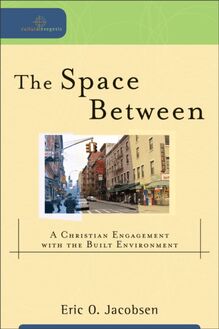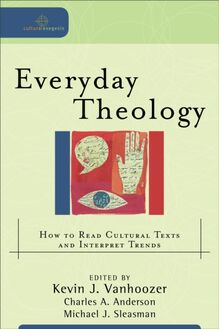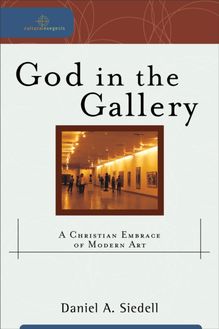-
 Univers
Univers
-
 Ebooks
Ebooks
-
 Livres audio
Livres audio
-
 Presse
Presse
-
 Podcasts
Podcasts
-
 BD
BD
-
 Documents
Documents
-
- Cours
- Révisions
- Ressources pédagogiques
- Sciences de l’éducation
- Manuels scolaires
- Langues
- Travaux de classe
- Annales de BEP
- Etudes supérieures
- Maternelle et primaire
- Fiches de lecture
- Orientation scolaire
- Méthodologie
- Corrigés de devoir
- Annales d’examens et concours
- Annales du bac
- Annales du brevet
- Rapports de stage
La lecture à portée de main
Vous pourrez modifier la taille du texte de cet ouvrage
Découvre YouScribe en t'inscrivant gratuitement
Je m'inscrisDécouvre YouScribe en t'inscrivant gratuitement
Je m'inscrisEn savoir plus
Vous pourrez modifier la taille du texte de cet ouvrage
En savoir plus

Description
Sujets
Informations
| Publié par | Baker Publishing Group |
| Date de parution | 01 mars 2007 |
| Nombre de lectures | 0 |
| EAN13 | 9781441200495 |
| Langue | English |
Informations légales : prix de location à la page 0,0778€. Cette information est donnée uniquement à titre indicatif conformément à la législation en vigueur.
Extrait
Everyday Theology
cultural exegesis
William A. Dyrness and Robert K. Johnston, series editors
The Cultural Exegesis series is designed to complement the Engaging Culture series by providing methodological and foundational studies that address the way to engage culture theologically. Each volume works within a specific cultural discipline, illustrating and embodying the theory behind cultural engagement. By providing the appropriate tools, these books equip the reader to engage and interpret the surrounding cultural responsibly.
Everyday Theology
How to Read Cultural Texts and Interpret Trends
Edited by Kevin J. Vanhoozer Charles A. Anderson Michael J. Sleasman
© 2007 by Kevin J. Vanhoozer, Charles A. Anderson, and Michael J. Sleasman
Published by Baker Academic a division of Baker Publishing Group P.O. Box 6287, Grand Rapids, MI 49516-6287 www.bakeracademic.com
Ebook edition created 2010
Ebook corrections 11.30.2011
All rights reserved. No part of this publication may be reproduced, stored in a retrieval system, or transmitted in any form or by any means for example, electronic, photocopy, recording without the prior written permission of the publisher. The only exception is brief quotations in printed reviews.
ISBN 978-1-4412-0049-5
Library of Congress Cataloging-in-Publication Data is on file at the Library of Congress, Washington, DC.
Unless otherwise indicated, Scripture quotations are from the HOLY BIBLE, NEW INTERNATIONAL VERSION®. NIV®. Copyright © 1973, 1978, 1984 by International Bible Society. Used by permission of Zondervan. All rights reserved. www.zondervan.com
Scripture quotations marked RSV are from the Revised Standard Version of the Bible, copyright 1952 [2nd edition, 1971] by the Division of Christian Education of the National Council of the Churches of Christ in the United States of America. Used by permission. All rights reserved.
Scripture quotations marked ESV are from The Holy Bible, English Standard Version, copyright © 2001 by Crossway Bibles, a division of Good News Publishers. Used by permission. All rights reserved.
Contents
A Reader’s Guide: How to Use This Book
Part 1 Introduction: Toward a Theory of Cultural Interpretation
1. What Is Everyday Theology? How and Why Christians Should Read Culture Kevin J. Vanhoozer
Part 2 Reading Cultural Texts
2. The Gospel according to Safeway: The Checkout Line and the Good Life Jeremy D. Lawson, Michael J. Sleasman, and Charles A. Anderson Jeremy
3. Despair and Redemption: A Theological Account of Eminem Darren Sarisky
4. The High Price of Unity: The Universal Declaration of Human Rights David G. Thompson
5. Between City and Steeple: Looking at Megachurch Architecture Premkumar D. Williams
6. Swords, Sandals, and Saviors: Visions of Hope in Ridley Scott’s Gladiator Michael J. Sleasman
Part 3 Interpreting Cultural Trends
7. The Business of Busyness: Or, What Should We Make of Martha? Charles A. Anderson
8. Welcome to the Blogosphere Justin A. Bailey
9. Human 2.0: Transhumanism as a Cultural Trend Matthew Eppinette
10. Fantasy Funerals and Other Designer Ways of Going Out in Style Ben Peays
Part 4 Concluding Untheoretical Postscript
11. Putting It into Practice: Weddings for Everyday Theologians Charles A. Anderson and Michael J. Sleasman
Glossary of Methodological Terms Kevin J. Vanhoozer
Notes
Everyday Theologians Information
A Reader’s Guide How to Use This Book
This is a book about everyday theology, written by everyday theologians for everyday theologians.
Everyday theology is the reflective and practical task of living each day as faithful disciples of Jesus Christ. Theology is not for Sundays only. Disciples must walk the Christian way the whole weekend and throughout the workweek. Theology is an everyday affair: to live to the glory of God is a full-time privilege and pursuit. Everyday theology is the mandate of every Christian who is actively trying to walk the way of truth and life.
Theology serves the church by directing the people of God in ways of speaking and acting that embody the love of God, the reconciliation won by Jesus Christ, and the fellowship of the Holy Spirit. Theology not only articulates beliefs but suggests “designs for living.” Precisely what form our life together takes, however, depends on where (and when) we are: the house churches in first-century Palestine are a far cry from medieval monasteries or modern megachurches. The gospel gets worked out somewhat differently in diverse cultural settings. The gospel the power of God unto salvation can transform culture; culture, however, is only too happy to return the compliment. Everyday Christians have to learn to negotiate their way carefully, following the one way of Jesus Christ through a variety of cultural byways.
The purpose of this book is to teach Christians to get the theological lay of the cultural land. It is less a matter of spying out some new land than of becoming conscious of the land in which one already dwells. What the apostle Paul says to the Athenians about God is also true of culture: “In [it] we live and move and have our being” (Acts 17:28). Faithful disciples need to understand the biblical text, but they also need to understand their cultural context; they need to become bilingual.
If theology is the ministry of the Word to the world, it follows that theologians must know something about the world to which they are ministering. What should have been common sense, however, has for various reasons been something of a blind spot, at least until the advent of postmodernity. Indeed, one way of viewing postmodernity is as a “turn to culture.” Postmoderns have criticized modern myths about universality precisely because postmoderns have a keen sense of our situatedness in race, gender, class, history, tradition and culture.
Christian missionaries have always been aware of the need to engage culture. Yet only recently has it been suggested that the West has become a mission field. Lesslie Newbigin points out that the West presents a special challenge to Christian missions, for this is the first time the church has had to mount a mission to a culture that was previously Christian. 1 How does one evangelize cultures that have already received the gospel only to revise or to reject it? For these and other reasons, Christian colleges and seminaries are increasingly coming to see that the study of culture is part and parcel of the prospective minister’s theological training.
Where This Book Began
The genesis of this book lies in a course that I first taught in 2001 and have taught annually since then at Trinity Evangelical Divinity School: “Cultural Hermeneutics” (my two co-editors were student guinea pigs in that original class). The name of the course is significant. Most seminary students are well acquainted with biblical hermeneutics: the study of the principles and methods for interpreting the Bible. Similarly, cultural hermeneutics is the study of principles and methods for interpreting culture.
Devising the name and of course the aims and objectives of the course was the easy part. I quickly discovered that the plethora of textbooks in biblical hermeneutics stood in stark contrast to what I was able to find for my new course. While there were books in specific disciplines (e.g., anthropology, sociology) that dealt with interpreting culture, there were no textbooks that dealt with how to interpret culture theologically. I therefore have devised my own approach, a distillation of which may be found in the first essay of the present book. I also developed a number of case studies of cultural phenomena ranging from body piercing and gardens to John Ford’s film Stagecoach and Levi’s ads that served as catalysts to my students’ imaginations.
The chapters that comprise this book were originally submitted as term papers for my course. My co-editors and I have selected a representative sampling from the one hundred and forty-five term papers written over the past five years. Other papers deserve to be included here but could not be due to considerations of space, balance, and so forth. Honorable mention goes to those students (you know who you are) who wrote on such diverse trends as makeovers, Starbucks (a very popular topic), masculinity, femininity, magazines for teenage girls, free-market dating, Internet dating, professional football, Notre Dame football (a world unto itself), extreme sports, bumper stickers, cell phones, lifestyle centers, worship styles, procrastination, facebook.com, Slam poetry, rap, hip-hop, literary genres (e.g., cyberpunk), radio shows (e.g., This American Life ), television shows, and films like Memento , The Matrix , Moulin Rouge , and Minority Report (and that’s just the “M-list”).
Some may wonder what these topics have in common or what seminary students are doing writing on these issues. Good question! My opening essay serves as the long answer. The short answer is that each chapter is an exercise in “reading” culture theologically, that is, with a view to achieving Christian understanding of what is going on in our part of the world, why it is going on, and how we should respond.
What This Book Is About
It is appropriate that the subtitle of our book is a subtle allusion to a cultural icon: Dale Carnegie’s How to Win Friends and Influence People . First published in 1937, the book was an overnight sensation, eventually selling more than fifteen million copies. Carnegie believed that the secret to financial success has less to do with specialized knowledge than it does with people skills. How to Win Friends is really a book about how to “read” men and women: people hermeneutics.
Everyday Theology is also a how-to book, as its subtitle How to Read Cultural Texts and Interpret Trends indicates, though the success for which it aims is measured not in terms of money but of understanding. I set forth the principles for understanding “cultural hermeneutics” in my in
-
 Univers
Univers
-
 Ebooks
Ebooks
-
 Livres audio
Livres audio
-
 Presse
Presse
-
 Podcasts
Podcasts
-
 BD
BD
-
 Documents
Documents
-
Jeunesse
-
Littérature
-
Ressources professionnelles
-
Santé et bien-être
-
Savoirs
-
Education
-
Loisirs et hobbies
-
Art, musique et cinéma
-
Actualité et débat de société
-
Jeunesse
-
Littérature
-
Ressources professionnelles
-
Santé et bien-être
-
Savoirs
-
Education
-
Loisirs et hobbies
-
Art, musique et cinéma
-
Actualité et débat de société
-
Actualités
-
Lifestyle
-
Presse jeunesse
-
Presse professionnelle
-
Pratique
-
Presse sportive
-
Presse internationale
-
Culture & Médias
-
Action et Aventures
-
Science-fiction et Fantasy
-
Société
-
Jeunesse
-
Littérature
-
Ressources professionnelles
-
Santé et bien-être
-
Savoirs
-
Education
-
Loisirs et hobbies
-
Art, musique et cinéma
-
Actualité et débat de société
- Cours
- Révisions
- Ressources pédagogiques
- Sciences de l’éducation
- Manuels scolaires
- Langues
- Travaux de classe
- Annales de BEP
- Etudes supérieures
- Maternelle et primaire
- Fiches de lecture
- Orientation scolaire
- Méthodologie
- Corrigés de devoir
- Annales d’examens et concours
- Annales du bac
- Annales du brevet
- Rapports de stage












